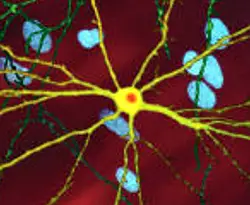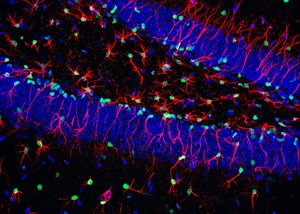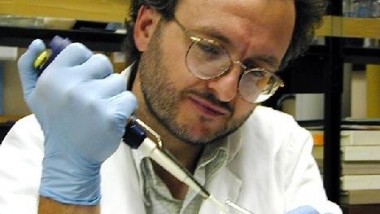Researchers at the University of Melbourne in Melbourne, Australia discovered a key step in the progression of Huntington’s disease. A genetic neurological disease that normally begins to manifest itself when patients are in their thirties and forties, Huntington’s disease has ...
Canine Genome Research
Researchers at Stanford University in Palo Alto, California and elsewhere determined that a relatively small number of DNA regions control a large portion of the physical differences between various breeds of dogs. The scientists hope that further study of these ...
RNA Used to Reprogram Cells
Researchers at the Massachusetts Institute of Technology in Cambridge, Massachusetts developed a new method for reprogramming human skin cells into other cells. Their method delivers the necessary genes using messenger RNA instead of the viruses currently used in skin cell ...
Social Networks Predict Disease Spread
Scientists at Harvard University in Cambridge, Massachusetts and The University of California at San Diego determined a method of predicting the spread of contagious diseases using social networking theories. Utilizing the friendship paradox – the idea that a person’s friends ...
New Lung Cancer Treatment
Researchers at Harvard Medical School and the Massachusetts General Hospital in Boston, Massachusetts are developing a new lung cancer drug for Pfizer. Currently in the early phases of a stage 3 clinical trial, Crizotinib was successful in shrinking non-small cell ...
Bacteria Identification on a Chip
Scientists at the National Cheng Kung University in Taiwan developed a new method of identifying bacteria on a microchip. They apply a mild electric field to gold electrodes on roughened glass slides to sort the bacteria, and then Raman spectroscopy ...
Brain Rewards Good Deeds
Researchers at Stanford University in Palo Alto, California and Trinity College in Dublin, Ireland showed that the brain reacts differently to events when it perceives them as good deeds even if those good deeds are aimed at others. The scientists ...
Genetic Links to Human Longevity
Scientists at Boston University and Boston Medical Center in Massachusetts have discovered a group of genetic variants that can predict long life in humans with 77% accuracy. By examining the genomes of people over the age of one hundred, researchers ...
Type 1 Diabetes Nanoparticle Vaccine
Researchers at the University of Calgary in Canada have developed a nanoparticle vaccine for Type 1 diabetes. The vaccine, successfully tested on mice, was designed to stop the autoimmune response responsible for causing Type 1 diabetes in children without damaging ...
New Virus Defense Mechanism
Researchers at Yale University in New Haven, Connecticut have discovered a new way that viruses reproduce and survive in hostile environments. Viruses use many different mechanisms to trick human cells into multiplying viruses and propagating them throughout biological systems. The ...









